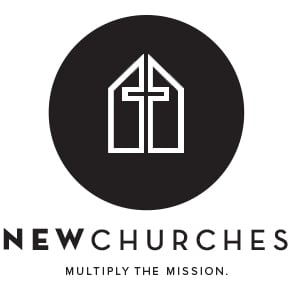By Daniel Im:

Q&A Webinar with Eric Mason
Our Q&A Webinars are a monthly segment designed for Plus Members to hear from leading experts in church planting, multisite, leadership, and multiplication. For this month’s segment, Ed and I talk with Eric Mason, Senior Pastor at Epiphany Fellowship in Philadelphia, PA, and author of several books including, Manhood Restored.
Wielding the Double-Edged Sword
I recently came across a story where two teenagers outside of Louisville, KY, were playing with a samurai sword. In typical teenage fashion and fun, they would fling a water bottle in the air and attempt to slice it in half with the sword. As one of the teenagers flung the water bottle in the air and swung the sword, the blade broke off from the handle, which sent the blade flying into the air. A few seconds later, the flying blade became impaled in the forehead of the other teenager. Amazingly, the teenager survived, although he has much rehabilitation ahead.
As you can see, swords, like any kind of weapon, are dangerous. As such, they should be handled with caution, not carelessness; reverent fear, not reckless fun.
You might be thinking to yourself, “I know this!” So why share this story, and give us a reminder in exercising caution in wielding a weapon—particularly that of a sword? Because in Hebrews 4:12, the author writes the following, “For the word of God is living and active, sharper than any two-edged sword, piercing to the division of soul and of spirit, of joints and of marrow, and discerning the thoughts and intentions of the heart.” From the hands of this biblical author, under the inspiration of the Holy Spirit, we learn that handling the word of God is like handling a double-edged sword. If this is so, then preaching is like wielding a double-edged sword.
Recently, Ed and I chatted with Eric Mason, Senior Pastor of Epiphany Fellowship in Philadelphia, PA, and author of several books including his latest, Manhood Restored. Our discussion with Eric centered aon the topic of preaching. In our time, I believe Eric gave us at least three sword-wielding (preaching) lessons.
1. Learn how to use the sword yourself, before you teach others to use it.
As one who preaches often, it’s not too hard to fall into the trap of going through the mechanics verses the maturation of sermon prep. In other words, because of all the other demands of pastoral ministry or bivocationalism, it’s easy to treat sermon prep the way we would treat a paper due in seminary, “I got to get this done,” verses “God, what are you teaching me, and how do you want me to communicate this to your people?”
There’s a difference between the two perspectives. The mechanical perspective treats the sermon as a spiritual exercise to take people through, whereas the maturation perspective treats the sermon as a convictional experience where one shares out of the overflow of intimacy with God. In other words, preachers during prep time should want the Word to do to them what they are wanting it to do to others. In fact, Eric expresses that guys who aren’t necessarily good at preaching usually aren’t intimate with God. Therefore, a preacher’s study time should be a time where they are first learning how the sword (the Word) shapes and applies to their own life before moving to how it is supposed to shape and apply to the lives of others.
2. There’s more than one way to effectively use a sword.
I’m always intrigued by the vast number of diets that exist to help people lose weight. There’s Weight Watchers, South Beach, Nutrisystem, Whole 30, and a host of other methods that people use (or have used) to help them lose weight and become healthier. And as you know, each method has its advocates. But here’s the truth: they all have worked. Thus, there’s not just one way or method for people to lose weight and become healthier. In a similar way, there’s not just one method for preachers to use to give people a healthy dose of expository preaching.
I’ve heard and read books where professors or even practitioners want to declare one way of preaching. But the reality is, there are multiple ways to use (preach) the sword correctly and effectively. For Eric, he has created four forms or categories of exegetical preaching series:
To read about the four forms or categories, the final lesson on wielding the sword, and to watch the full video, click here.
This video is part of Plus Membership. To get full access to it, and much more, I encourage you to become a Plus Member. Click here to see all the benefits of becoming a Plus Member.
Tweetables:
- Under the inspiration of the Holy Spirit, we learn that handling the word of God is like handling a double-edged sword.
- W/the demands of life & ministry, it’s easy to treat sermon prep the way we would treat a paper due in seminary, “I got to get this done.”
- The sermon should be a convictional experience where one shares out of the overflow of intimacy with God.
- Preachers, in your study time, does the Word do to you what you want it to do to others?
- There’s not just one method for preachers to use to give people a healthy dose of expository preaching.
- By “sabbathing” periodically from preaching, preachers are more apt to stay sharp, energized, & effective at sermon prep & delivery.
- Preaching is a weighty responsibility because it is the means by which the sword (God’s Word) is wielded toward the hearts of mankind.
- Don’t treat the sword (God’s Word) as a fun toy to play with but as the ferocious tool that chisels believers into the image of Jesus.
Source: Wielding the Double-Edged Sword
